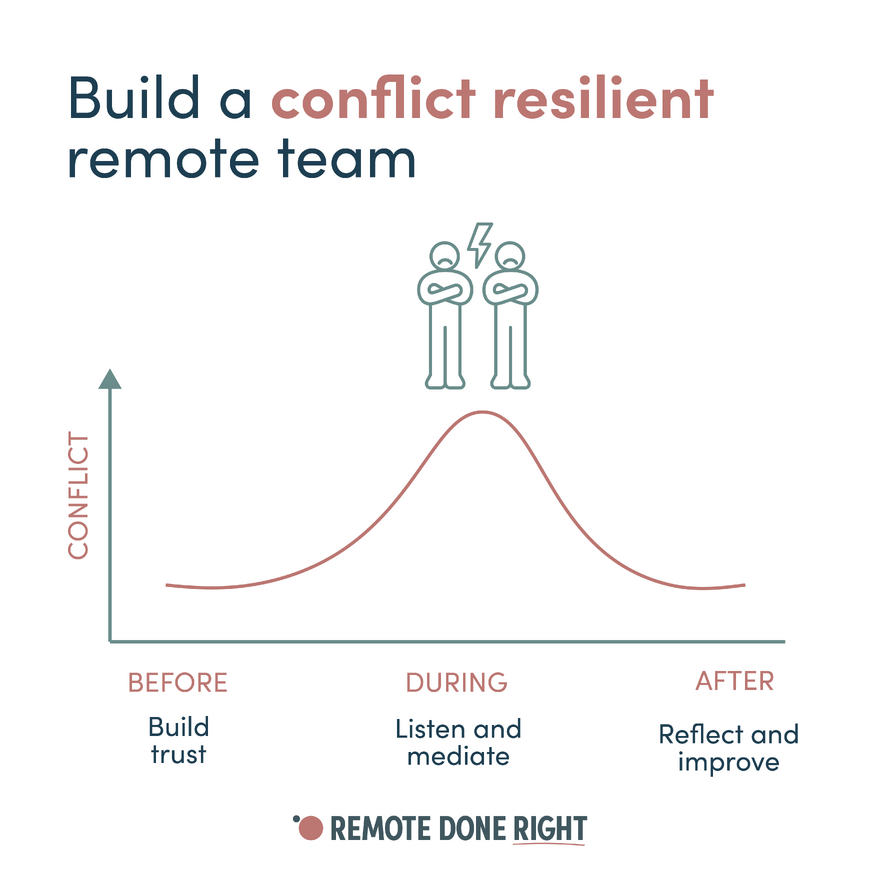Team conflict is inevitable, setting clear expectations and open lines of communication in your remote team can help address it.

Identify the sources of conflict
Conflict in remote teams can arise from various sources. Recognising these sources is the first step towards addressing and resolving them effectively.
- Communication breakdowns: misunderstandings often occur due to the lack of face-to-face interaction. Text-based communication can lead to misinterpretations.
- Cultural differences: diverse teams bring different cultural perspectives, which can sometimes clash if not managed properly.
- Unequal workload distribution: perceived or actual imbalances in workload can cause resentment among team members.
- Lack of clarity in roles and responsibilities: unclear expectations can lead to confusion and frustration.
- Technology issues: technical problems can disrupt workflow and create stress, leading to conflicts.
Mediate conflict
Once you've identified the sources of conflict, it's essential to implement effective resolution techniques tailored to remote teams.
- Neutral mediator: appoint a neutral party who can facilitate discussions objectively.
- Structured process: follow a structured mediation process that includes setting ground rules, allowing each party to speak, and brainstorming solutions together.
- Confidentiality: ensure that all parties feel safe by maintaining confidentiality throughout the mediation process.
- Focus on interests, not positions: encourage parties to discuss their underlying interests rather than sticking rigidly to their positions.
- Follow-up: after mediation, follow up with the involved parties to ensure that agreed-upon solutions are being implemented.
Prevent future conflict
Preventing conflicts is always better than having to resolve them later on. Some strategies for fostering a conflict-free remote work environment include:
- Clear policies and procedures: establish clear guidelines on how tasks should be completed and how conflicts should be handled if they arise.
- Professional development opportunities: offer training sessions that focus on skills such as communication, empathy, and teamwork.
- Open door policy: encourage an open-door policy where team members feel comfortable voicing concerns early on.
- Regular feedback loops: implement regular feedback loops where employees can share their thoughts on what’s working well and what needs improvement.
Unlock the full potential of remote work for you and your team, visit our downloads page to access free remote working resources and subscribe to our newsletter to receive insights, resources and tools in your inbox each month.
